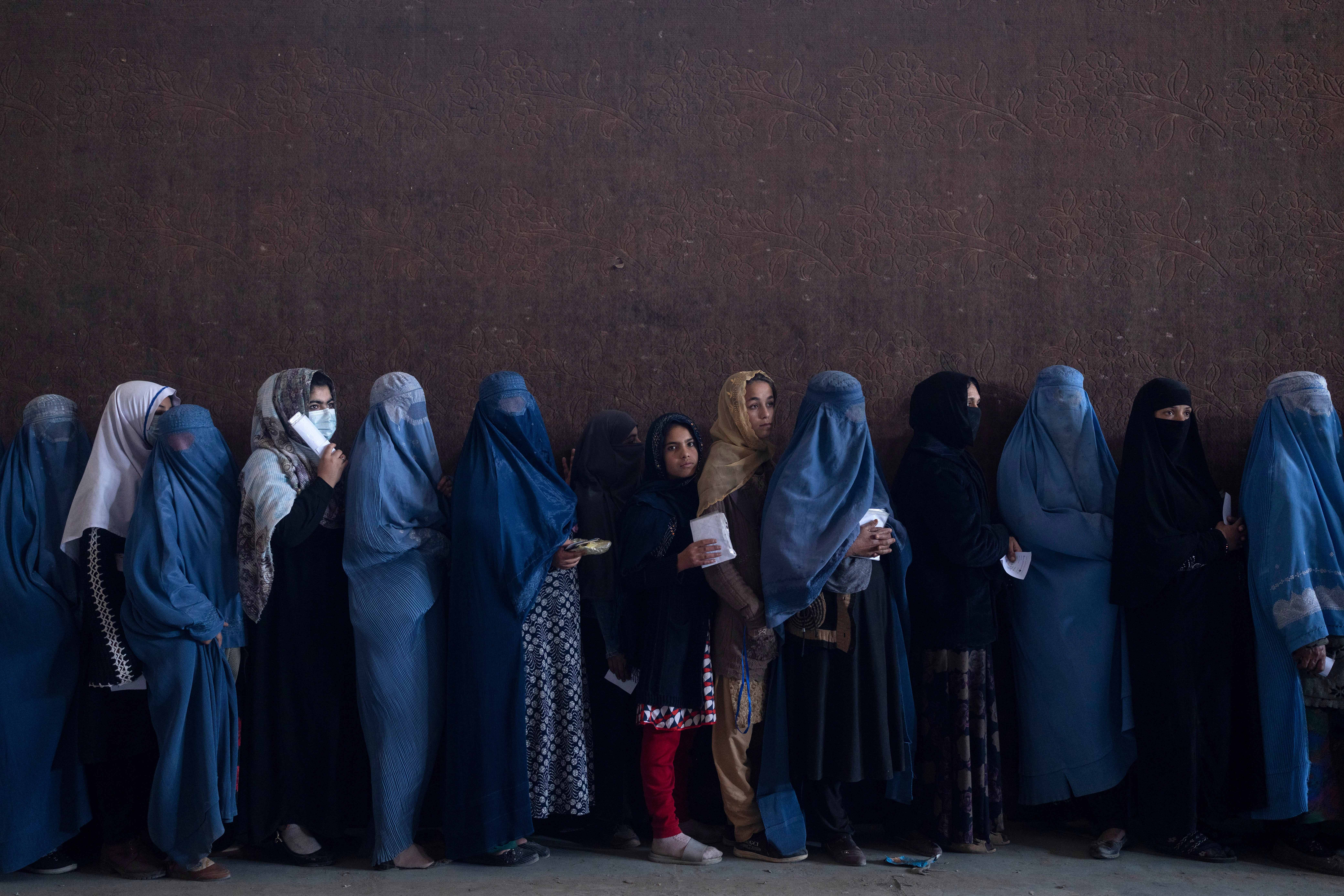Afghan journalists ‘facing death threats’ and harsh rules, with female reporters hit hardest
‘I used to produce reports on virginity testing and violence against women, which no one can cover anymore,’ says female journalist

Your support helps us to tell the story
From reproductive rights to climate change to Big Tech, The Independent is on the ground when the story is developing. Whether it's investigating the financials of Elon Musk's pro-Trump PAC or producing our latest documentary, 'The A Word', which shines a light on the American women fighting for reproductive rights, we know how important it is to parse out the facts from the messaging.
At such a critical moment in US history, we need reporters on the ground. Your donation allows us to keep sending journalists to speak to both sides of the story.
The Independent is trusted by Americans across the entire political spectrum. And unlike many other quality news outlets, we choose not to lock Americans out of our reporting and analysis with paywalls. We believe quality journalism should be available to everyone, paid for by those who can afford it.
Your support makes all the difference.Journalists in Afghanistan are facing death threats and harsh new rules, which are particularly impacting women, according to campaigners.
Human Rights Watch warned the Taliban’s clampdown on the press is escalating, with Taliban intelligence officials forcing all journalists to enter all of their articles to be authorised before they can be published.
New rules unveiled by the Taliban’s Ministry for the Promotion of Virtue and Prevention of Vice on Sunday have blocked soap operas and dramas from including women actors.
The regulations have also forbidden all films thought to infringe “Islamic or Afghan values,” as well as making the hijab – a head covering some Muslims choose to wear – compulsory for all female journalists who appear on TV.
A number of journalists said local officials instantly got in contact with them after they wrote articles shining a light on human rights abuses carried out by the Taliban – with many media outlets shutting offices and only publishing stories online due to worries about reprisals.
A reporter who wrote a story about complaints levied against the Taliban for conducting house searches and beating people said the deputy governor ordered him into his office to tell him if he publishes anything similar, “he would hang me in the town square.”
The chief editor at a press outlet run by women said their journalists are forced to use fake names to conceal their true identities.
“I used to produce reports on virginity testing and violence against women, which no one can cover anymore,” a woman, who worked as a journalist in Herat in north-western Afghanistan, said. “No program covers women’s issues, especially on TV channels. The educational and entertainment programs have all stopped.”
While other members of the press claim heavily armed Taliban intelligence officials came to their offices urging reporters to refrain from using the word “Taliban” and instead refer to the “Islamic Emirate” in their stories and broadcasts.
Meanwhile, local media were demanded to swap the term suicide bomber with the word martyr by intelligence officials in one part of Afghanistan.
Patricia Gossman, associate Asia director at Human Rights Watch, said: “The Taliban’s new media regulations and threats against journalists reflect broader efforts to silence all criticism of Taliban rule. The disappearance of any space for dissent and worsening restrictions for women in the media and arts is devastating.
“Despite the Taliban’s promises to allow media that ‘respected Islamic values’ to function, the reality for Afghanistan is that journalists live in fear of a knock on the door or a summons from the authorities. This is contributing to an information blackout in which Taliban abuses increasingly happen in secret and without accountability.”
The chief editor for a local media outlet said the majority of his staff had chosen to stop working due to fearing simply doing their job was placing them at risk. He said: “Access to information has become very limited.”
Another journalist said: “After they threatened us with death, we published what they said. Now we broadcast Quranic verses at the beginning of the programs and naat [Islamic songs] because we fear for our safety.”
The Taliban swept to power in mid-August as the US and British forces withdrew. The last time the hardline Islamist group ruled the country women were barred from working, girls were blocked from going to school, and women had to be chaperoned by a male relative if they wanted to leave the house.


Join our commenting forum
Join thought-provoking conversations, follow other Independent readers and see their replies
Comments